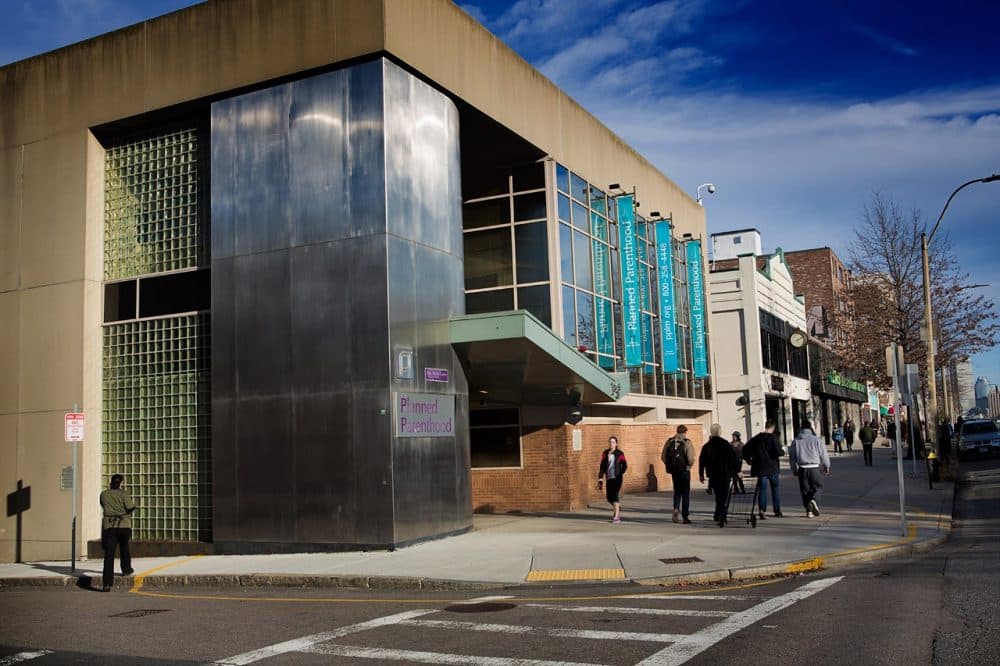Advertisement
Mass. Study: Need For Judge's Consent Holds Up Minors' Abortions 6 Days On Average

A new study of abortions sought by more than 2,000 Massachusetts minors finds that needing approval from a judge causes a significant delay: an average of six extra days compared to teens who could get the required consent from their parents.
For one in three minors in the study who went before a judge, that delay meant they missed the window for being able to abort using pills rather than a procedure, says Dr. Elizabeth Janiak of Harvard Medical School, lead author on the study just out in the journal Obstetrics and Gynecology.
"They first called the clinic when they would have been eligible for a medication abortion, but by the time they were able to make it in to the clinic for their care, they were no longer eligible," she says.
A bill that would allow Massachusetts women under age 18 to have abortions without consent from a parent or a judge is now pending in the Legislature, and this new data will surely factor in to the debate. I spoke with Dr. Janiak about the study and have edited our conversation below:
What did you find?
We looked back at medical records from young people seeking abortion care at Planned Parenthood League of Massachusetts over a five-year period. Our goal with the study was to investigate differences in access to care and clinical quality between minors who have parental consent for an abortion, and minors who need to go to court to have a hearing to gain the ability to consent to the abortion without their parents. That's called the judicial bypass process.
In medical records from over 2,000 young people, we saw that the large majority do have parental consent: 77 percent compared to only 23 percent who utilize the court system.
We were also curious to see who utilizes judicial bypass more, because we know it imposes some burdens on young people, including psychological distress and the need to miss school to attend a judicial bypass hearing.
We found that young people who use judicial bypass were disproportionately non-Hispanic black and Hispanic compared to those with parental consent. And we also found that more young people who use judicial bypass are low income.
Advertisement
We also were interested in the amount of time associated with using the bypass process. We saw that among minors who utilized parental consent, the average delay was about eight days — they're getting into the clinic about eight days after the first call to schedule an abortion.
But the average delay among those who utilize judicial bypass was 14 days. This means that the bypass process is introducing an additional delay of six days.
And those six days put some patients past the deadline for a medical abortion?
Correct. That additional six-day wait increases the likelihood that young people will lose the option of having a medication abortion early in pregnancy.
Any person has the option of inducing an abortion either with medication or having a brief procedure in the clinic. They're both extremely safe and extremely effective, but we know that many people have strong preferences between the two.
Young people who utilize judicial bypass were at increased risk of losing the option for medication abortion, meaning they first called the clinic when they would have been eligible for a medication abortion, but by the time they were able to make it into the clinic for their care, they were no longer eligible. This happened to one in three minors who utilize judicial bypass.
And this is particularly relevant in Massachusetts right now because there's a bill pending that would remove parental consent?
Yes, and the public health and medical communities are unanimous in support of the idea that young people should have access to care when they're pregnant, and they should have expeditious and unimpeded access to care regardless of their race or how much money they have.
The average is a six-day delay. But there were some delays that were far longer. What happened?
Great question. Some minors with judicial bypass did experience very lengthy delays: One in five were delayed 21 days or more, whereas among those with parental consent, fewer than one in 10 experienced that long a delay.
Did those delays put any patients beyond the threshold to get an abortion at all?
In a statistical sense, passing that threshold is a rare event because most people seek abortion very early in pregnancy. So we were not able to assess whether using judicial bypass had a statistically significant effect on being unable to access abortion at all due to advanced gestational age.
If we had an even larger sample, we might see such a difference.
